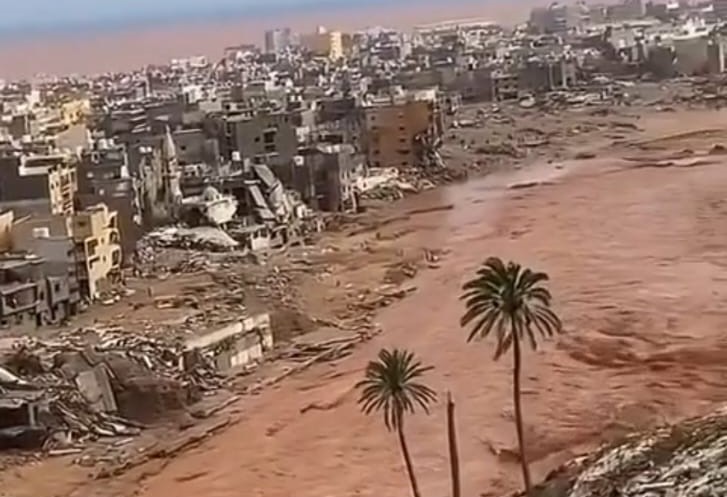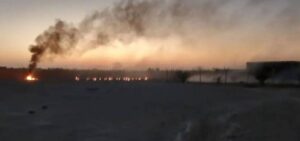Derna floods left nearly 20,000 dead in Libya
The number of dead people could reach as high as 20,000. The floods were caused by heavy rainfall.

Floods in Libya was caused by heavy rainfall and collapse of two dams.
Derna, the eastern Libyan city was devastated by floods after two dams collapsed. The floods swept away entire city blocks and killed thousands of people. The death toll is still rising, and tens of thousands of people have been displaced. The number of dead people could reach as high as 20,000. The floods were caused by heavy rainfall, poor drainage, and the collapse of the two dams. The dams were reportedly in poor condition and had not been properly maintained.
The floods have caused widespread damage to infrastructure, including roads, bridges, and schools. Hundreds of homes have been destroyed, and thousands of people have been left homeless. The floods have also contaminated water supplies, making it unsafe for people to drink.
The humanitarian situation in Derna is dire. People are in need of food, water, shelter, and medical care. The Libyan government has been struggling to respond to the crisis, and international aid is urgently needed. Many citizen journalists have shared horrifying videos of the floods on X.
Thousands have died in Libya so far due to a flood.#Libya pic.twitter.com/rNDwrr0RlM
— Jack ██████ (@JackFought_1) September 12, 2023
The floods in Derna are a stark reminder of the vulnerability of communities to climate change. Extreme weather events are becoming more frequent and intense as the planet warms. Countries need to invest in disaster preparedness and resilience measures to protect their people and infrastructure from the devastating effects of climate change.
The floods have caused widespread damage to infrastructure, including roads, bridges, and schools. Hundreds of homes have been destroyed, and thousands of people have been left homeless.
The impact of the floods on vulnerable groups is high, including women, children, and the elderly. Many women have been separated from their families and are now struggling to find food and shelter. Children have been exposed to trauma and have lost access to education. The elderly are particularly vulnerable to the effects of the floods, as many of them live in poor-quality housing and have limited mobility.
International organizations are appealing for support to bring back life back to normal.







